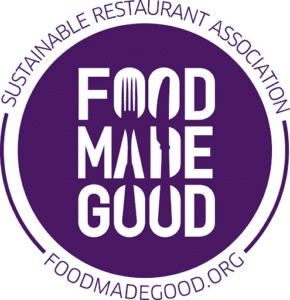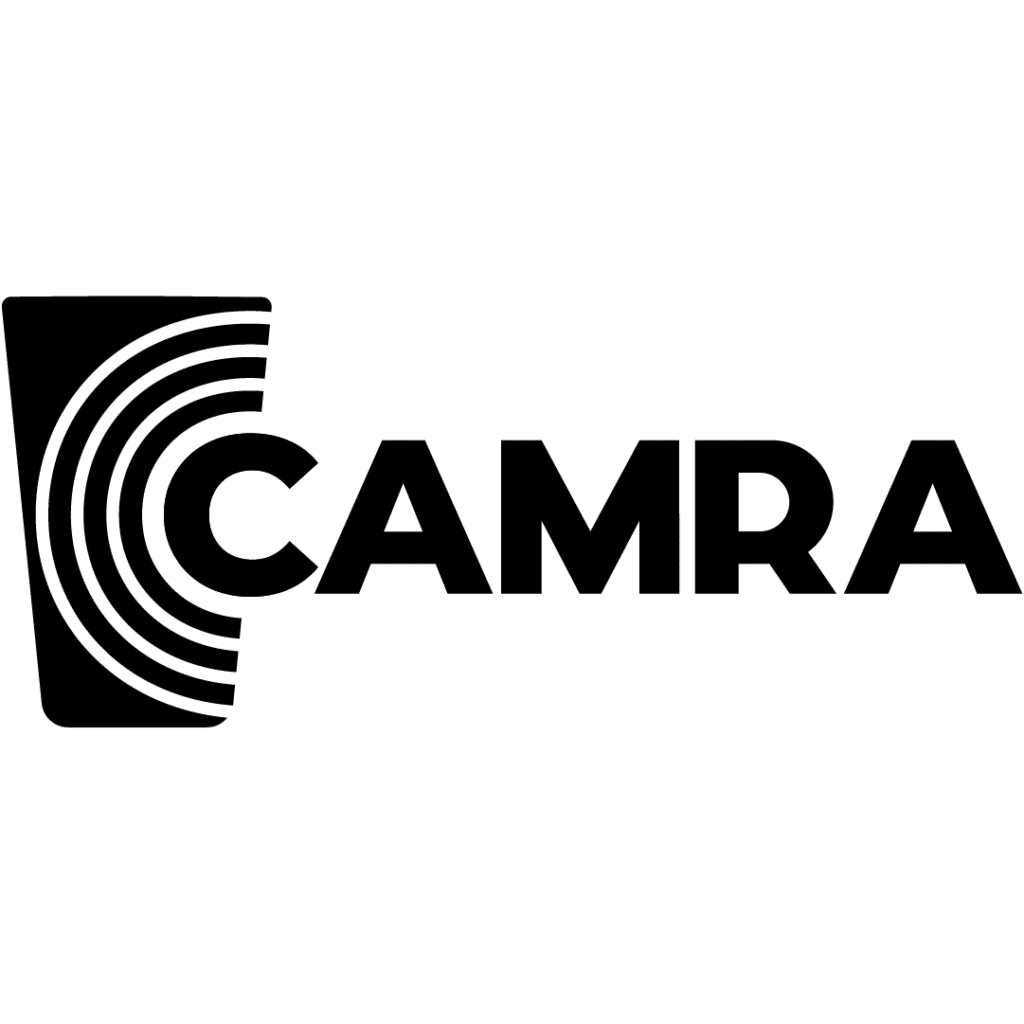Responsible retailing
Responsible retailing
Publishing date: March 2025
Food served
Wetherspoon aims to provide a balanced menu which increases sales, offers customers variety and choice, when it comes to nutritional and dietary preferences, and gives transparency of information for customers to be able to make informed decisions.
The menu, and food, philosophy is to ensure that every item is best in class (EIBIC) and to strive consistently to improve each item, meal and/or process.
The company has set targets and commitments in this area, including:
- By November 2027 – at least one option in each menu category which contains no more than 50% of the total recommended daily intake for kcal, sugar, fat or salt
- By November 2027 – the average of all dishes in each category is no greater than 30% of the total recommended daily intake for kcal, sugar, fat or salt
- Set and work towards maximum kcal (Calorie) levels for each menu category as follows:
- main meal (adult) – 1,400 kcal (70% of recommended daily kcal, female)
- dessert (adult) – 625 kcal (31% of recommended daily kcal, female)
- small plates – 500 kcal (25% of recommended daily kcal, female)
- Provide menu options (all menu templates) for the following dietary requirements:
- vegetarian meal options (including vegan options) – not under 33% of menu choices
- vegan meal options – not under 15% of menu choices
- no-gluten-containing options – not under 25% of menu choices
- no-dairy-containing ingredients options – not under 40% of menu choices
- under 500 Calories options – not under 33% of menu choices
- 5% fat or less dish options – not under 25% of menu
With regard to the main menu, Wetherspoon has committed to the following:
- Track the levels of kcal, sugar, fat and salt and not to increase the average consumption (by dish) of any of these, across our menu as a whole.
- Offer a lighter or small portion alternative for all categories and meal occasions, including desserts and snacking.
- Ensure that vegetables and/or salads are available on all menus.
- Offer healthier alternatives for side orders on all menus, such as side salad and jacket potatoes.
- Where appropriate, offer the option of a smaller meal, by offering a lower price without the side orders (such as chips and onion rings), eg just-a-burger or smaller-portion-size meals, eg small fish and chips.
- Remove artificial flavours and colours and as many of the 14 major allergens as possible.
- Ensure that all meals are nut-free.
Children’s menu
With regard to the children’s menu, the following targets are being worked towards:
- By November 2025 – the maximum kcal, sugar and salt for each menu category will be:
- main meal (child) – 700 kcal (50% of recommended daily kcal, 6–10 years) ; 2g salt (66% of recommended daily, 4–6 years)
- main meal (younger child) – 500 kcal (50% of recommended daily kcal, 2–3 years)
- dessert (child) – 375 kcal (25% of recommended daily kcal, 6–10 years); 12g sugar (50% of recommended daily allowance)
With regard to the children’s menu, the following targets are being worked towards:
- Monitor kcal, salt and sugar levels in all food and drinks specifically marketed at children.
- Provide a children’s menu offering credible healthier choices, with controlled levels of salt, added sugar, saturated fat and total fat.
- Support and promote the five-a-day message for fruit and vegetables. All children’s meals will be served with two portions of vegetable or a side salad, plus a fruit portion.
- Promote healthier choices, wherever possible, highlighting these healthier swaps on menus.
- Not to offer or promote to children fizzy drinks or any other drink which falls under the Soft Drinks Industry Levy (SDIL).
- No artificial flavours or colours in any food marketed at children.
Menu balance – vegetarian and vegan
The company has, over the years, increased the menu options for customers eating none, or reduced, meat, fish and animal-related products and, subject to demand, will continue to do so.
The current menu (available in the majority of pubs) has:
- vegetarian meal options (including vegan options) – 39% of menu choices
- vegan meal options – 11% of menu choices Responsible retailing
Food Foundation – Peas Please campaign
Wetherspoon supports the Food Foundation’s Peas Please campaign and, in 2019, made the pledge:
“We are ensuring that our children’s meals include at least two vegetable portions. We already have two portions as an option with all ‘bigger appetite’ dishes and most ‘smaller appetite’ dishes and plan to review how the default can be improved. We are also due to trial a free ‘carrot bag’ in early 2020, as well as menu redevelopment to get more ‘hidden’ vegetables included. With our pledge, we commit to aiming for continuous progress to increase the vegetable portions which we serve to children every year.”
Soil Association – Out to Lunch campaign
The Out to Lunch 2024 campaign sent an army of secret diner parents to assess the quality of 20 popular UK high-street food chains. Run by the Soil Association, it rated J D Wetherspoon as the best restaurant overall in 2021, with Wahaca, Zizzi and Wagamama close behind.
The 2024 campaign rated Wetherspoon second overall to Wahaca, with Harvester and Nando’s close behind.
Health and nutrition, allergens
In line with the Calorie Labelling (Out of Home Sector) (England) Regulations 2021, all menus detail calories for all food items and some drink items.
Full allergen, nutritional and calorie information can be found on customer information screens in pubs, the website and the Wetherspoon app. Customers can ask at the bar, where staff will be able to direct them to this information.
Vegetarian dishes, vegan dishes, dishes which are 5% fat or less and dishes under 500 Calories are indicated by symbols on the menu.
Public Health Responsibility Deal
Wetherspoon has supported the Public Health Responsibility Deal from its introduction in 2011.
The public health responsibility deal was established to tap into the potential for businesses and other organisations to improve public health and tackle health inequalities through their influence over food, alcohol, physical activity and health in the workplace.
The company signed up to the following pledges in the food section:
- Calorie reduction
- Salt catering: reformulation of products as purchased by the customer
- Salt reduction
The company signed up to the following pledges in the alcohol section:
- Awareness of alcohol units in the on-trade
- Tackling underage alcohol sales
- Supporting Drinkaware
- Responsible advertising and marketing of alcohol
- Supporting community actions to tackle alcohol harm
Code of conduct for responsible retailing
The company supports practices which promote sensible drinking and have established a ‘code of conduct for responsible retailing’, outlining the company’s approach in this area.
In October 2014, it was the first major on-trade alcohol retailer to include the alcohol unit content of all drinks on the drinks menu. Alcohol units are now displayed on the Wetherspoon app and the customer information screens in pubs.
The company supports and works with cross-industry organisations, including the British Institute of Innkeeping (BII), UK Hospitality (UKH) and the British Beer and Pub Association (BBPA). A company
representative sits on the National Pubwatch
committee. In addition, financial support is provided
to Drinkaware and the Licensed Trade Charity.
Pubwatch and Best Bar None
Pubwatch is a forum which has improved wider town and city environments by bringing together pubs, local authorities and the police, in a concerted way, to encourage good behaviour and reduce antisocial activity.
Wetherspoon’s pubs are members of 532 schemes countrywide. During the last financial year, there have been four new schemes and 10 fewer schemes, owing to disposals.
The company also helps to fund National Pubwatch, founded in 1997, an umbrella organisation which helps to set up, co-ordinate and support local schemes.
In many locations, a company pub manager chairs the scheme and, where there is no pubwatch, the company will work with the local police and council to try to establish one.
It is our experience, in some towns and cities where the authorities have struggled to control antisocial behaviour, that setting up a local pubwatch has been instrumental in improving safety and security – of not only licensed premises, but also the town and city in general, as well as assisting the police in
bringing down crime.
In addition, pubs are encouraged to enter the Best Bar None schemes (run by local authorities and the police, to encourage good behaviour in town centres), promoting a safe and secure environment.
In January 2023, 88 pubs were accredited by a Best Bar None scheme.
See:
Responsible gambling
The company applies proof-of-age policies to anyone playing gaming machines to ensure that they are not played by customers aged under 18 years.
Responsible gambling messages are displayed on digital gaming machines, with information also provided about support organisations for problem gambling.
The company is currently trialling digital age-recognition software.
Food safety and health and safety
Wetherspoon has always emphasised the importance of hygiene standards.
As at 1 February 2025, we have 735 pubs rated on the Food Standards Agency’s website (see table below).
The average score is 4.99, with 99.3% of the pubs achieving a top rating of five stars.
We believe this to be the highest average rating for any substantial pub company.
In the separate Scottish scheme, which records either a ‘pass’ or a ‘fail’, all 56 pubs have passed.
With Milton Keynes Borough Council, we have signed a primary authority partnership (under the Better Regulation Delivery Office scheme) for health and safety, food safety and trading standards.
| Financial year | Total pubs scored | Average rating | Pubs with highest rating (%) |
| 2013 | 771 | 4.85 | 87.0 |
| 2014 | 824 | 4.91 | 92.0 |
| 2015 | 858 | 4.93 | 94.1 |
| 2016 | 836 | 4.89 | 91.7 |
| 2017 | 818 | 4.89 | 91.8 |
| 2018 | 807 | 4.97 | 97.3 |
| 2019 | 799 | 4.97 | 97.4 |
| 2020 | 781 | 4.96 | 97.0 |
| 2021 | 787 | 4.97 | 98.4 |
| 2022 | 775 | 4.98 | 98.6 |
| 2023 | 756 | 4.99 | 99.2 |
| 2024 | 736 | 4.99 | 99.6 |
Monitoring standards
pub receives at least five quality-assurance visits each month from a combination of its area manager, the audit department, an external ‘mystery shopper’ company and other head-office managers. The scores from these visits are combined and form part of the bonus scheme for all pub-based employees.
Since 1999, Wetherspoon has worked with independent real-ale quality assessor Cask Marque to gauge the quality of ale being served in its pubs. Cask Marque carries out an 11-point audit, covering stock rotation, beer line cleanliness, equipment maintenance, glass washing cleanliness and hygiene. A star rating is
awarded from one to five, with a target of four to five stars for all pubs. Cask Marque states that 66% of UK pubs achieve four or five stars. Of the Wetherspoon pubs, 98% have achieved four or five stars.
Guinness has a quality accreditation programme. Independent assessors review 17 aspects of quality. All Wetherspoon pubs passed their Guinness accreditation.
CAMRA’s publication The Good Beer Guide
There are 251 Wetherspoon pubs listed in CAMRA’s publication The Good Beer Guide 2025 (2024: 236 pubs) – a larger proportion, we believe, than any other substantial pub company.
See:
Tax
Wetherspoon is tax domiciled in the UK.The company manages and pays tax in a clear, fair and transparent way. All tax payments are made in the UK.
See:
- Tax strategy – 31 July 2024
Sustainable Restaurant Association (SRA) – Food Made Good sustainability award
J D Wetherspoon has been awarded the highest rating of three stars on the Food Made Good standard, the world’s largest sustainability certification tailored for the hospitality sector. The standard evaluates the impact across three pillars: sourcing, society and environment.
The SRA says: “Limiting global warming to 1.5ºC is a large, urgent challenge and requires each of us to act. It is not enough for businesses to signal that sustainability matters – they must demonstrate that they are taking action across all business areas. Diners care more than ever about sustainability.
The Food Made Good standard is a third-party certification which signals to staff, suppliers and customers that we are a progressive business which understands that doing the right thing for people and for the planet is core to operations.”
Since the last assessment, the company has improved across all three pillars, scoring highest (79%) in the ‘environment’ pillar. The SRA noted that the company
had already both completed a carbon footprint analysis and set reduction targets for the future.




